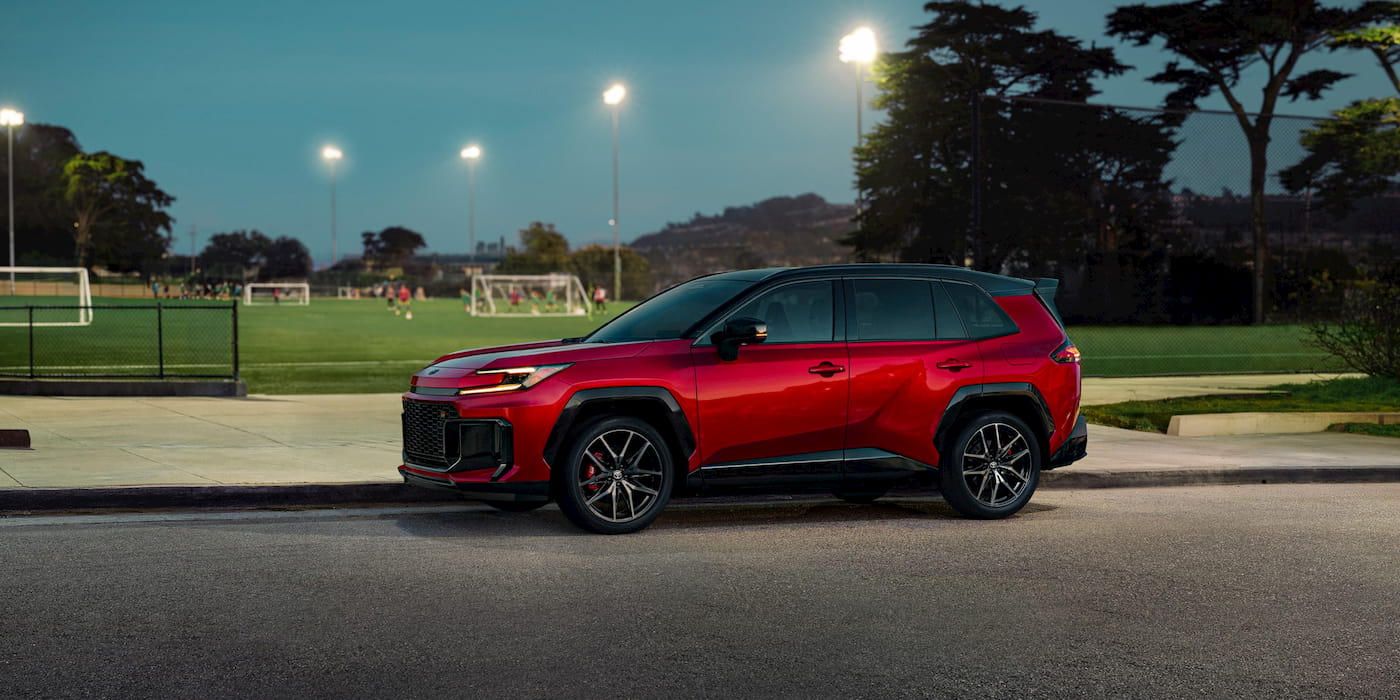Toyota's Electric Revolution: New RAV4 and Land Cruiser EVs Signal Strategic Shift
Toyota is making a decisive move into the electric vehicle market with two highly anticipated SUV models. The automaker is repurposing its production strategy to introduce all-electric versions of the iconic RAV4 and Land Cruiser, marking a significant pivot in its electrification roadmap.
Key Highlights
- Models: All-electric Toyota RAV4 and Land Cruiser SUVs
- Strategic Shift: Replaces planned luxury Lexus EV in production lineup
- Market Position: Targets mainstream and rugged adventure segments simultaneously
- Production Timeline: Expected within the next 2-3 years
Toyota's Electric Pivot: From Lexus to Mainstream EVs
In a surprising strategic reversal, Toyota has redirected resources from a planned luxury Lexus EV to accelerate development of electric versions of its two most popular SUVs. This decision reflects Toyota's recognition that mass-market electrification requires focusing on high-volume models rather than niche luxury vehicles. The move signals Toyota's commitment to competing directly with electric offerings from Ford, Volkswagen, and Hyundai in the critical compact and large SUV segments.
Why the RAV4 and Land Cruiser?
The RAV4 has been America's best-selling non-pickup for years, making it an obvious candidate for electrification. Its transition to electric power represents Toyota's bid to dominate the compact electric SUV market. Meanwhile, the Land Cruiser's return as an electric vehicle serves multiple purposes: it capitalizes on the model's legendary reputation for durability while positioning Toyota to compete in the emerging electric adventure vehicle segment against rivals like the Rivian R1S and upcoming electric Land Rover models.
Expected Specifications and Features
While Toyota remains tight-lipped about exact specifications, industry analysts predict both models will utilize the company's new e-TNGA platform, which already underpins the bZ4X. Expect significant improvements in range, charging speed, and technology compared to Toyota's first generation electric vehicles.
| Feature | RAV4 EV (Expected) | Land Cruiser EV (Expected) |
|---|---|---|
| Range | 280-320 miles | 350-400 miles |
| Battery Size | 75-85 kWh | 100-120 kWh |
| Drivetrain | Single or dual motor AWD | Dual or quad motor AWD |
| Towing Capacity | Up to 1,500 kg | Up to 3,500 kg |
| DC Fast Charging | 10-80% in ~30 minutes | 10-80% in ~35 minutes |
Market Implications and Competitive Landscape
The introduction of these two electric SUVs positions Toyota to compete in fundamentally different segments simultaneously. The electric RAV4 will likely compete directly with the Ford Mustang Mach-E, Volkswagen ID.4, and Hyundai Ioniq 5, while the Land Cruiser EV enters a more premium space against the Rivian R1S, Jeep Wagoneer S, and upcoming electric Range Rover. This two-pronged approach demonstrates Toyota's understanding that electrification isn't a one-size-fits-all proposition.
Production Strategy and Timeline
Toyota's decision to prioritize these models over a luxury Lexus EV suggests a fundamental rethinking of its electrification strategy. Insiders suggest production could begin as early as late 2025, with the RAV4 EV likely arriving first. The vehicles are expected to be manufactured at Toyota's dedicated EV plants in Japan and possibly at its North American facilities as well.
Challenges and Opportunities
Toyota faces significant challenges in delivering competitive electric vehicles that live up to the reputation of their gasoline-powered counterparts. The company must ensure the electric RAV4 maintains the affordability and practicality that made the original successful, while the Land Cruiser EV must deliver the off-road capability and durability the nameplate is known for. However, success in these segments could cement Toyota's position in the electric era rather than leaving it playing catch-up.
Toyota's strategic pivot to electric versions of its most iconic SUVs represents one of the most significant developments in the electric vehicle market. By focusing on high-volume, mainstream models rather than niche luxury vehicles, Toyota is positioning itself to bring electric vehicles to the masses rather than just the premium segment. The success of these models could determine whether Toyota maintains its position as an automotive leader through the industry's electric transition.


